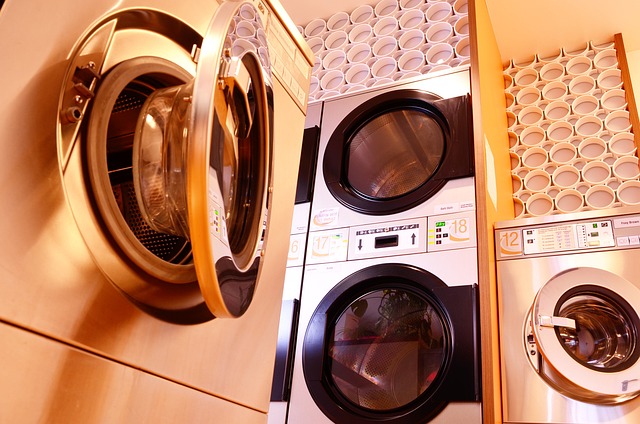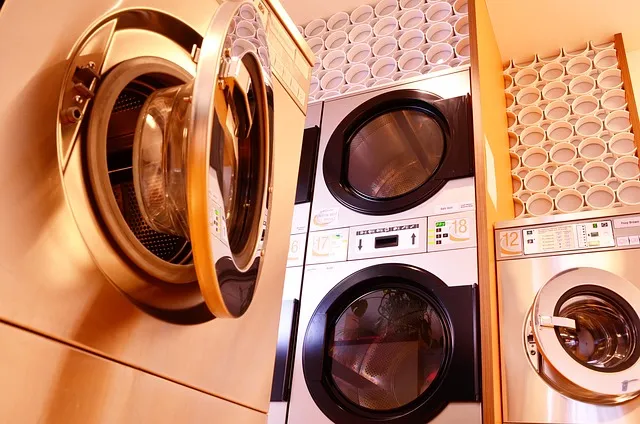How Do Gas Dryers Compare to Electric Dryers in Energy Efficiency?

First up, gas dryers typically have a leg up in energy efficiency compared to their electric counterparts. This is because gas dryers use natural gas or propane to generate heat, which tends to warm up quicker than the electric coils in an electric dryer. This quicker heating means gas dryers can often finish the job faster, translating to lower energy consumption overall. Think of it like boiling water: a gas burner usually heats up faster than an electric one, and the same principle applies to drying your clothes.
Electric dryers, on the other hand, are usually less efficient because they rely solely on electricity to generate heat. They take longer to get up to temperature and often require more energy to maintain that heat. While modern electric dryers are getting better with advanced technology and features like moisture sensors that optimize drying time, they still often lag behind in efficiency compared to gas models.
Let’s not forget about the cost aspect. In many regions, natural gas is cheaper than electricity, which means running a gas dryer can save you money on your utility bills. However, installation costs for gas dryers can be higher, and you need to have a gas line set up if you don’t already have one.
So, when it comes to energy efficiency, gas dryers generally have the edge due to faster heating and lower operational costs. But remember, the best choice for you will depend on your specific needs, available utilities, and long-term savings goals.
Gas vs. Electric Dryers: Which Is More Energy Efficient for Your Home?
First off, electric dryers are incredibly popular. They’re straightforward to install—just plug them in and go. But here’s a twist: they typically use more energy to dry your clothes. How? Well, they rely on electricity to heat the air and then use a fan to circulate that hot air through your laundry. This process, while effective, can lead to higher utility bills, especially if you’re using your dryer frequently.
Now, let’s talk gas dryers. These bad boys use natural gas or propane to generate heat. They often dry clothes faster than their electric counterparts because they can reach higher temperatures quickly. This can translate into lower energy consumption over time. Plus, gas dryers usually have a smaller electric element, which means less overall electricity usage.
But wait—there’s more to consider! While gas dryers might be more energy-efficient, they do require a gas line and proper ventilation. That can mean extra installation costs and a bit more hassle. On the other hand, electric dryers are easier to set up but can cost more to run over the long haul.
So, if you’re looking for efficiency and don’t mind a bit of extra installation work, a gas dryer might be your best bet. If convenience and lower upfront costs are more your style, an electric dryer could be the way to go. Ultimately, it’s about balancing your preferences and budget.
The Great Debate: Gas Dryers vs. Electric Dryers in Energy Consumption
Gas dryers are like the sprinters of the laundry world. They heat up quickly, thanks to natural gas or propane, and can dry your clothes faster. Because they use gas to generate heat, they typically have lower operating costs compared to electric dryers. Imagine cooking with a gas stove versus an electric one—the gas stove usually gets the job done faster and often uses less energy. Similarly, gas dryers often use less energy to dry a load, which translates to savings on your utility bill.
On the flip side, electric dryers are the workhorses, running on electricity to heat up and tumble your clothes. They generally have a higher initial cost, but they are more straightforward to install and don’t require a gas line. While they might take a bit longer to dry your clothes, they’re often seen as a more convenient option for those who don’t want to deal with the additional setup for gas.
Energy consumption between the two is where the real debate lies. Gas dryers might have lower operating costs because gas is often cheaper than electricity. However, electric dryers can still be competitive if you’re using them efficiently. Think of it like choosing between a luxury sports car and a reliable sedan—each has its strengths depending on what you’re looking for in performance and cost.
In essence, the choice between gas and electric dryers boils down to your priorities. If you’re after speed and lower running costs, gas might be your best bet. If you prefer ease of use and installation, electric could be the way to go.
Cutting Costs: How Gas and Electric Dryers Stack Up in Energy Efficiency
Electric dryers are often the go-to choice for many households, and they’re relatively easy to install since they just need an electric outlet. However, they can be a bit of an energy hog. While modern electric dryers are getting better, they still use a fair amount of electricity, which can translate to higher utility bills over time.
On the flip side, gas dryers can be a bit more efficient. They heat up faster because they use gas burners, which means your clothes dry quicker. This can lead to lower energy consumption overall. Plus, gas tends to be cheaper than electricity in many areas, which can lead to some serious savings. However, installing a gas dryer requires a gas line, which might involve additional costs.
Imagine your dryer as a car: electric dryers are like a fuel-efficient hybrid, while gas dryers are like a turbo-charged sports car. Both get you where you need to go, but one might do it more cost-effectively.
So, if you’re eyeing that next dryer purchase and want to keep your costs in check, it’s crucial to weigh the efficiency of each option. In essence, gas dryers could potentially save you more on your energy bills, but the choice ultimately boils down to your specific needs and utility rates.
Eco-Friendly or Cost-Effective? Comparing the Energy Efficiency of Gas and Electric Dryers
First up, gas dryers. These machines run on natural gas, which is typically cheaper than electricity. This means, right off the bat, your utility bills could see a pleasant dip. But the savings don’t stop there. Gas dryers heat up quickly and maintain a consistent temperature, which can dry your clothes faster. The quicker drying time translates to less energy used overall, making gas dryers a solid pick if you’re watching those energy bills closely.
On the flip side, electric dryers use, well, electricity. They’re usually easier to install since they only need a standard electrical outlet. Plus, modern electric dryers are designed with advanced technology that can be surprisingly efficient. Features like moisture sensors and energy-saving modes help reduce energy consumption by stopping the cycle when clothes are dry. This means less wasted electricity and a lighter environmental footprint.
But let’s talk green: if you’re passionate about reducing your carbon footprint, electric dryers might be your best bet, especially if your electricity comes from renewable sources. Solar or wind-powered electricity makes electric dryers a more eco-friendly choice. Gas dryers, on the other hand, rely on natural gas, which, although cleaner than coal, is still a fossil fuel and contributes to greenhouse gas emissions.
So, what’s the verdict? If you’re after immediate cost savings and quicker drying, gas dryers have the edge. But if you’re leaning towards an eco-friendly lifestyle and your power source is renewable, electric dryers could be your green choice. Balancing your priorities between the environment and your wallet will help you make the most informed decision.
Save Money and Energy: A Comparative Analysis of Gas and Electric Dryers
When it comes to energy efficiency, gas dryers often come out on top. They heat up faster and dry your clothes more quickly, which means they use less energy per load. On the other hand, electric dryers, although cheaper to buy, typically have higher operational costs due to longer drying times and more energy consumption. So, if you’re looking to keep those energy bills in check, a gas dryer might be your best bet.
Another factor to weigh is installation. Electric dryers are usually easier to set up, requiring only an electrical outlet. Gas dryers, however, need a gas line and proper ventilation, which can add to the initial cost and complexity. If you’re not keen on dealing with these extra steps, an electric dryer might be more convenient.

But let’s not forget maintenance. Gas dryers generally require more regular maintenance to ensure safe operation, whereas electric dryers are often simpler to maintain. Additionally, if your area has fluctuating gas prices, the overall cost-effectiveness of a gas dryer can vary.
So, whether you’re swayed by the efficiency of a gas dryer or the straightforward setup of an electric one, weighing these factors will help you make the ultimate decision for your needs.
Which Dryer Is Greener? Exploring the Energy Efficiency of Gas vs. Electric Models
Picture this: a gas dryer and an electric dryer in a face-off. On one side, the gas dryer, which runs on natural gas. It’s like a sports car, quick to heat up and generally more efficient at getting your clothes dry in less time. Why? Because gas dryers can reach higher temperatures faster, which means they often use less energy overall compared to their electric counterparts.
On the flip side, we have the electric dryer, which operates on electricity. It’s more like a reliable workhorse. While electric dryers typically take a bit longer to dry your clothes and might use more energy to do so, advancements in technology are making them increasingly efficient. Some modern electric models come with features like moisture sensors that help prevent over-drying, reducing energy consumption.
Now, let’s talk numbers. Gas dryers are usually more energy-efficient because natural gas is often cheaper and burns hotter than electricity. This efficiency translates into lower utility bills and a smaller carbon footprint. However, electric dryers have made significant strides in recent years, with many now boasting high energy ratings and eco-friendly modes that also help cut down on energy use.
So, which is greener? If you’re looking purely at energy efficiency and carbon footprint, gas dryers often have the edge. But, if your local electricity comes from renewable sources, an electric dryer might be a worthy contender. Ultimately, it depends on various factors, including your local energy sources and specific dryer models.

